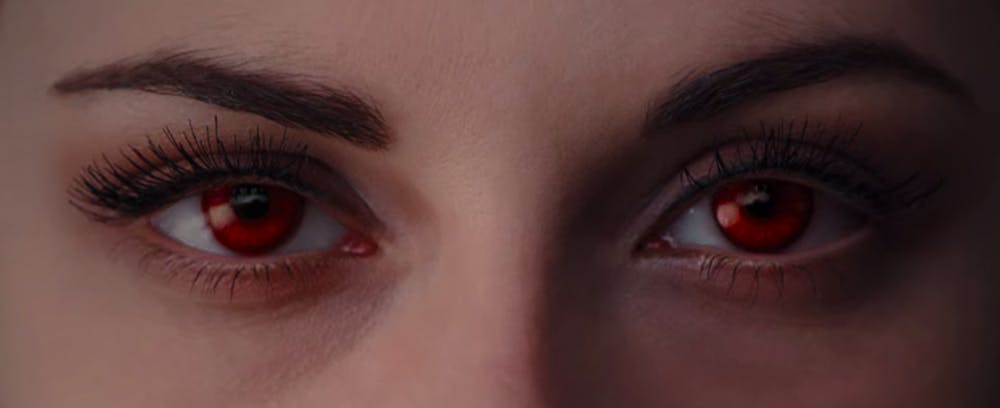Once upon a time, forbidden relationships between brooding vampires and angsty humans was the standard for romance among adolescents—teenage girls in particular. The Twilight Saga, which ran from 2008 to 2012, is notorious for its ridiculous premises, cringeworthy lines, and unrealistic depictions of romantic relationships. Bella Swan and Edward Cullen’s brave defiance of social norms in the name of love is heavily undermined by their intensely codependent relationship and frequent acts of gaslighting—like in the first movie, when Edward makes Bella question her sanity when she notices his vampiric tendencies and behavior.
Nevertheless, the five–part series defined the landscape of young adult films in the 2010s and generated a lifetime gross of $1.4 billion at the box office. In fact, fans rejoiced on Twitter when The Twilight Saga made its return to Netflix earlier this year in July. Whether it’s the phenomenon of something being "so bad, it’s good" at play or because it feeds right into our subconscious fantasies, its global success came as a surprise to both viewers and 18–year–old Kristen Stewart.
Stewart had never entertained the idea of becoming an actress until a talent scout persuaded her to go for auditions after hearing her sing at a Christmas pageant when she was eight years old. She had starred in movies as early as 2002, playing a diabetic daughter in Panic Room, but it was not until she was cast as Isabella “Bella” Swan in 2007 that she was thrust into the limelight.
Unprepared for Twilight’s ensuing popularity, Stewart had to deal with an onslaught of anxiety and stress, and began suffering from panic attacks. She was uncomfortable with the sudden attention from an exponentially growing fanbase, which mostly consisted of teenage girls, but to the public she seemed unappreciative of the support and was criticized for never smiling.
When she became romantically involved with her co–star, teen heartthrob Robert Pattinson, her loss of privacy was cemented. In an interview with Us Weekly, Stewart spoke about the Twilight franchise infringing on her personal life: “People wanted me and Rob to be together so badly that our relationship was made into a product. It wasn’t real life anymore.” At times, her fame was baggage she had no choice but to lug around.
In tandem with the vampire–werewolf hype and the obsession with the actors' chemistry was a barrage of vitriol from people who were unafraid to make their opinions heard. The Twilight Saga: Breaking Dawn—Part 2 snatched the 2013 Razzie Awards for “Worst Picture,” “Worst Prequel, Remake, Rip–Off or Sequel,” and “Worst Screen Ensemble.” Invented by John J.B. Wilson in 1981, the Razzies—formally known as the Golden Raspberry Awards—are intended to mock the Oscars and pay tribute to the worst films in cinematic history. “Kristen Stewart is so expressionless she might as well be a brick wall,” claimed Wilson.
Stewart, having played a teenage girl—well into her adult years—who fell in love with an arguably pedophilic vampire, struggled to access more serious roles after the series ended. For a while she kept her distance from mainstream film, opting instead for indie movies such as Certain Women.
We are left wondering whether she has any regrets with regards to the Twilight franchise. Although she has poked fun at the plot, she admitted in later interviews that she was initially hesitant to express how much she liked the role of Bella and Stephenie Meyer’s books, from which the Twilight movies were adapted. “Anybody who wants to talk shit about Twilight, I completely get it, but there’s something there that I’m endlessly, and to this day, fucking proud of,” she informed Patti Smith in a 2015 interview. Although the parts of the entertainment industry that she was deterred by have not gone away, she has found pursuing roles she's genuinely passionate about to be the remedy.
Despite boasting an impressive repertoire of around 45 to 50 films, Stewart only considers a select few to be “really good films”—among those are Clouds of Sils Maria (2014), Personal Shopper (2016) and, more notably, not Twilight. However, her evocative performance as Princess Diana in her new movie Spencer—which holds the promise of a 2022 Oscar nomination—may just top that list.







